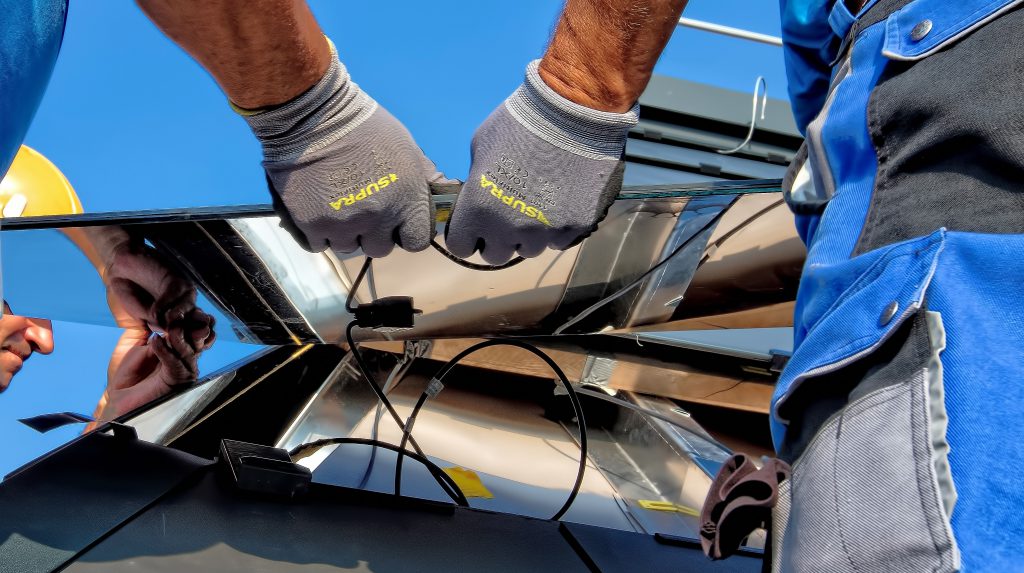
If you’ve recently repaired or replaced your roof and have solar panels installed, scheduling a post-roof solar inspection isn’t optional — it’s essential.
Even if your roofer was careful, roofing work can shift mounts, disturb wiring, or compromise seals around solar components. A professional inspection ensures your panels are secure, your system is safe, and your energy production stays consistent.
Here’s why you should always schedule a solar inspection after any roofing project.
1. Protects Your System from Hidden Damage
During roofing work, vibrations, movement, or heavy tools can loosen wiring, mounts, or flashing beneath your panels. These small disturbances often go unnoticed until they cause major issues like water leaks or production loss.
A post-roof inspection identifies and repairs minor problems before they turn into costly repairs.
2. Ensures Panels Are Properly Reinstalled
If your panels were removed for a roof replacement, it’s crucial they’re reattached correctly. Misaligned panels or poorly sealed mounts can affect efficiency and void warranties.
Licensed solar electricians inspect all mounting hardware and connections to confirm that your system meets safety and code requirements.
3. Confirms Electrical Connections Are Intact
Roofing crews focus on shingles and structure — not electrical systems. If wiring is pinched or disconnected during the process, your system might stop producing power altogether.
A post-roof inspection tests every connection to make sure energy flow is restored and stable.
4. Prevents Roof Leaks and Moisture Damage
Improper flashing or mount resealing can lead to water intrusion — one of the most common roof-related issues after solar work.
Technicians inspect all mounts, seals, and wiring penetrations to ensure your roof remains watertight and your attic stays dry.
5. Verifies System Performance
After roof work, your system should be tested to confirm it’s producing at full efficiency. A professional inspection includes performance monitoring, voltage testing, and inverter checks to ensure everything is operating properly.
If production levels dropped after roof replacement, this step helps restore full output.
6. Keeps Warranties and Insurance Valid
Most solar equipment and roof warranties require professional inspection after roof work. Failing to document post-roof testing can void coverage if future issues arise.
A licensed solar inspection provides the verification and paperwork you need for warranty protection.
7. Confirms Roof Integrity Around Mounts
Roofing repairs sometimes affect the areas where solar mounts are attached. An inspection checks that mounts are secure, flashing is properly sealed, and no damage occurred during shingle or underlayment replacement.
This ensures your roof remains fully protected against water and wind.
8. Detects System Misalignment
If panels were removed and reinstalled without precise positioning, even a small angle shift can reduce sunlight exposure. Professional inspections include verifying that panels are aligned correctly for optimal efficiency.
9. Prevents Long-Term Performance Loss
Post-roof inspections prevent the “slow decline” in energy production that can happen when minor roof-related issues go unchecked. By catching problems early, you preserve efficiency and avoid future repair costs.
10. Provides Documentation for Peace of Mind
Having a professional inspection report gives you proof that your system was tested and approved after roof work. This documentation is valuable for warranty claims, insurance verification, and property records.














